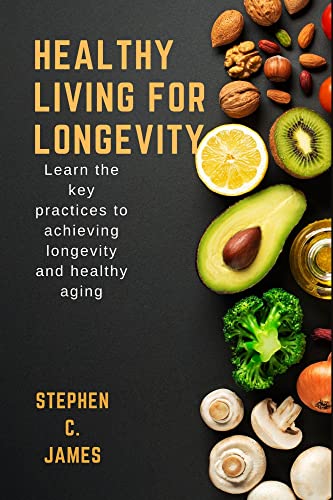Understanding Healthy Aging
Healthy aging is a multifaceted concept that encompasses maintaining physical, mental, and emotional well-being as individuals grow older. It emphasizes the idea that aging should not merely be viewed as a decline in health or vitality; rather, it should be seen as a continuous journey in which individuals can cultivate a fulfilling and robust life, regardless of their age. The process of aging involves significant biological changes, including gradual shifts in cellular function, hormone levels, and physical capabilities. However, these changes do not inherently dictate the quality of life in older adulthood.
A positive mindset plays a crucial role in the healthy aging process. Research indicates that individuals who maintain an optimistic outlook tend to experience better health outcomes, often exhibiting lower levels of stress and a greater ability to cope with life’s challenges. Mental resilience can lead to more active engagement in social activities, lifelong learning, and purposeful living, all of which contribute to overall longevity. Additionally, emotional well-being is paramount; nurturing strong relationships and seeking social connections can significantly enhance an individual’s quality of life as they age.
Lifestyle choices are equally influential in promoting healthy aging. Regular physical activity, balanced nutrition, and adequate sleep are essential components that support both physical health and mental clarity. Engaging in activities that stimulate the mind, such as puzzles, reading, or learning new skills, can also help maintain cognitive function and delay age-related decline. Importantly, the distinction between aging gracefully and the traditional view of aging lies in the recognition that vitality and fulfillment are attainable at any stage of life. Choices made early on can set the foundation for a vibrant and purposeful existence well into the later years.
Key Factors Influencing Longevity
Longevity, or the ability to live a long, healthy life, is influenced by a complex interplay of various factors. Genetic predisposition plays a significant role, as certain genetic traits can contribute to increased life expectancy. Research indicates that the genes responsible for cellular repair and maintenance can impact an individual’s resilience against age-related diseases. However, genetics alone does not determine longevity; environmental influences also play a critical part in shaping health outcomes. Factors such as air quality, exposure to toxins, and socio-economic conditions can significantly affect lifespan.
Another essential aspect of longevity is lifestyle habits. A balanced diet rich in nutrients, antioxidants, and healthy fats is widely recognized as key to promoting health and longevity. Diets that include a variety of fruits, vegetables, whole grains, and lean proteins can enhance physical and mental well-being. Regular physical activity is also vital. Engaging in moderate exercise not only helps manage weight but also contributes to improved cardiovascular health and decreased risk of chronic illnesses.
Moreover, adequate sleep duration and quality cannot be overlooked. Insufficient sleep has been linked to various health issues, including obesity, diabetes, and cardiovascular disease, which can ultimately affect longevity. Stress management is equally important; chronic stress can lead to detrimental health effects, underscoring the need for effective coping strategies like mindfulness and relaxation techniques.
Lastly, community and social connections have shown profound impacts on longevity. Studies reveal that individuals who maintain strong social ties and actively participate in their communities tend to enjoy longer, healthier lives. Notably, regions known as Blue Zones—areas with a high concentration of centenarians—demonstrate the positive effects of supportive social networks. Thus, fostering relationships and a sense of belonging can serve as powerful allies in the pursuit of longevity.
Nutritional Strategies for Healthy Aging
Promoting healthy aging through nutrition is essential for maintaining optimal health as we grow older. A balanced diet rich in antioxidants, vitamins, and minerals provides the body with the necessary fuel to combat oxidative stress and inflammation, which are often associated with age-related diseases. Consuming a variety of colorful fruits and vegetables contributes significantly to this goal, as they are packed with important nutrients that can enhance overall well-being.
Incorporating anti-inflammatory foods into your diet can further support healthy aging. Foods such as fatty fish, nuts, seeds, and olive oil are known for their anti-inflammatory properties. These items contain essential omega-3 fatty acids and healthy fats that not only help reduce inflammation in the body but also support brain health and cardiovascular function. Furthermore, it is crucial to prioritize hydration, as water plays a vital role in every bodily function. Staying adequately hydrated can aid in digestion, maintain skin elasticity, and support cognitive function.
Various dietary patterns also emphasize the importance of nutrition in promoting longevity. The Mediterranean diet, for instance, is frequently highlighted for its health benefits, such as improved heart health and reduced risk of chronic diseases. This diet is abundant in plant-based foods, whole grains, healthy fats, and lean proteins while limiting processed foods, sugars, and saturated fats. Similarly, exploring a plant-based eating approach can offer numerous health advantages, including lower risks of obesity, high blood pressure, and type 2 diabetes.
To make informed dietary choices, meal planning, portion control, and mindful eating are essential strategies. Planning meals in advance not only helps incorporate diverse food groups but also supports healthier choices. Paying attention to portion sizes can prevent overeating, while mindful eating promotes appreciation and enjoyment of food, leading to healthier eating habits overall.
Physical and Mental Activities to Enhance Longevity
The pursuit of longevity is increasingly recognized not only as a quest for a longer life but also a means to enhance the quality of that life. Engaging in regular physical activity plays a crucial role in this endeavor. Exercise not only helps maintain physical health but also contributes to mental well-being. A balanced exercise regimen that includes strength training, cardiovascular workouts, flexibility exercises, and balance activities is essential. Strength training exercises, such as weight lifting or resistance workouts, promote muscle mass retention and bone density, which are vital for maintaining mobility and independence as one ages. Cardiovascular workouts, including walking, jogging, or cycling, are important for enhancing heart health and improving overall endurance.
Flexibility exercises, such as yoga or stretching, facilitate greater range of motion, reducing the risk of injury. Additionally, balance activities, which may include tai chi or balance-focused workouts, are crucial in preventing falls, a significant risk factor for older adults. Collectively, these forms of physical activity create a robust foundation for healthy aging.
Complementing physical activities with mental stimulation is equally important. Engaging in cognitive training, such as puzzles, memory games, or learning new skills, serves to keep the brain active and may delay cognitive decline. Social engagement is another vital aspect of mental health; maintaining connections with family and friends can lead to improved emotional resilience and support. Creative pursuits, such as painting or writing, also foster mental engagement and are effective ways to express oneself. To incorporate these activities into daily routines, consider setting aside dedicated time for exercise, joining local clubs, or participating in community workshops. By combining physical and mental activities, individuals can create a comprehensive strategy for promoting overall health and longevity, ultimately enhancing their quality of life as they age.






